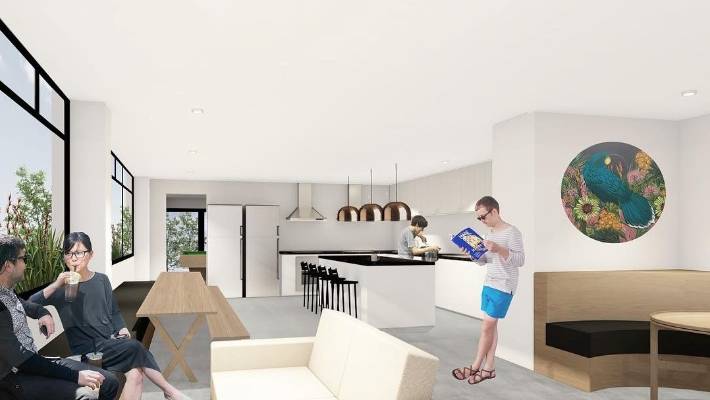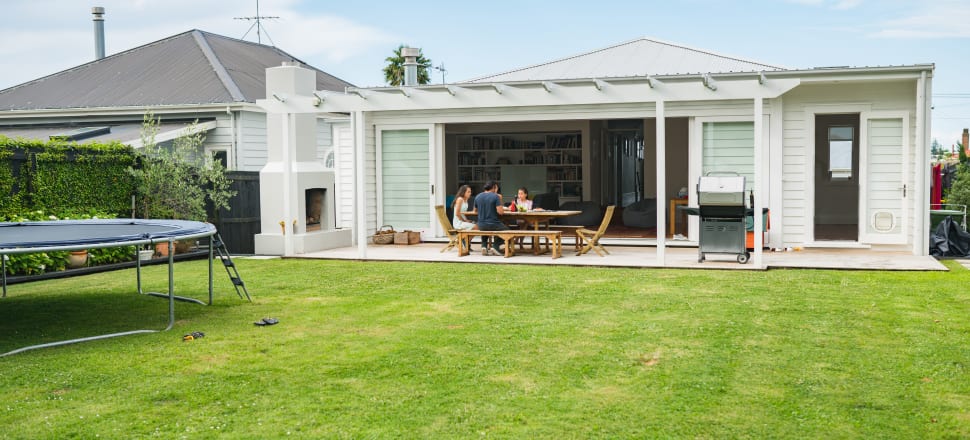Better places to live: community and housing
Ao-NZ’s munted housing market is stimulating lots of innovation and entrepreneurism, and the responses to different initiatives are revealing our preferences and prejudices.
Auckland’s new enterprise The Coh advertise it as “co-living”, whereas some critical commentators describe it as an “adult dorm” (some pretty strong framing!)
Let’s be clear – the “Co-” prefix is being slapped on all sorts of things, like a 2018 version of the “i-“. As Victoria University’s Mark Southcome says in his critical Spinoff piece, “‘Co’ is hip and cool. It’s fashionable as a prefix for all sorts of community-based and community-led, co-operative, collaborative and collective housing models. The prefix is also being co-opted…” (clever!)
It’s ambiguous and you can make a plausible argument that The Coh’s founder is tapping into the goodness. Fine, whatever, it’s marketing… except that word creep can ultimately confuse people and make them think something like The Coh is the same type of thing as cohousing.
If pressed, The Coh would no doubt refute this, but they’d be quite happy for the average punter to see The Coh in the same positive glow of communitarian, progressive, carefully curated, thoughtful and intentional design as true cohousing. True cohousing, as Southcombe points out, is An Actual Thing, and shouldn’t be lumped in with facilities like The Coh which are essentially high quality, modern boarding-houses.


(We note, though, that boarding-houses have acquired a sad stigma in the 21st century compared to earlier decades, and that housing markets need good-quality boarding-housing to fill some particular niches in demand. In 2019 there’s a good question as to whether our munted housing market means that “niche” is in fact a series of horrible gaping holes in what’s available for people. The comments thread below a Coh-critical Stuff article show different perceptions and prejudices in this vein.)
That’s cool, just don’t call it cohousing
Let’s be clear: Kiwis like to think of ourselves as friendly but actually making proper connections and feeling you belong is an uphill battle without bumping-into spaces, without shared activities and interests. So in that respect, well done Coh for seeking to help with this for the residents. Hopefully they’ll have good “common space” management so the advantages of sharing space aren’t outweighed by the frustrations of people being dorks and freeriders on the common space (flatting in your 20s anyone?)
So claps for shared activities and bumping into space, but it’s good to have accurate names for things. Iceland have just created a new naming suffix (for the last 100,000+ years they’ve had ~dottír and ~son, (“daughter of”, “son of”), now they also have ~bur, “child of”) so we can definitely use the already-existing right names for types of housing!
“Shared living” or some other word is fine, there’s no need to talk about ”adult dorm”.
We need to build for connection
In terms of a social need, The Coh are bang on about one thing: the loneliness of life in cities and towns. Their website emphasises “making connections” as part of life in their establishment, with group outings, Sunday roasts and “carefully curated” shared facilities bringing you into contact with others – and thereby meeting people.
There are some striking insights coming from new research from Victoria University (done under the superb National Science Challenge “Building Better Homes, Towns and Cities”).
Lead researcher Dr Rebecca Kiddle is investigating (amongst other things) the extent to which modern Ao-NZ urban form systemically prioritises private space in our suburbs, cities and towns. Turns out we do this a lot, and to the detriment of the public realm and common spaces.

This is bad news for us collectively because it’s common and public spaces, third places that let us connect with other humans outside our household, “bumping into” spaces where you can have regular, low-stakes interactions with people. “Bumping into” spaces in modern towns let us quietly expand our “circle of empathy” to others beyond those we select to invite to our private space (who are inevitably A Lot Like Me).
Living in environments that expand our circles of empathy means we become better human beings, without really having to try. One important example is how communities where people have larger circles of empathy are more resilient to the kinds of forces that grow racism, classism and other bigotries, and more able to grow social environments that bring out good human qualities like altruism.
Plus, being more socially connected thanks to bumping-into and third-spaces also makes us happier! The Health Promotion Agency’s useful summary (PDF 744KB) shows “Feeling isolated from others is strongly associated with symptoms of depression, anxiety and other forms of mental distress, and also with lower levels of life satisfaction.”
So the Coh and cohousing initiatives are trying, in their own very different ways, to build community on small scales. Papakainga layouts are the same, from a long history. Bigger-scale, state housing redevelopers HLC seem pretty determined to build community not just houses in places they’re redeveloping like eastern Porirua. City councils seem to have at least good intentions for the same.
How well do you think your suburb or town enables community in how it’s built, how it operates?
Interesting event: Rebuilding the kainga – lessons from Te Ao Hurihuri
Read more:
Image credits: Banner – The Coh. Interior – The Coh. Suburban home – Getty Images via Newsroom
Leave a comment